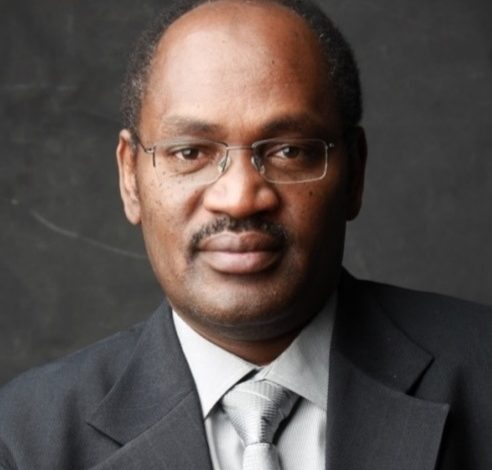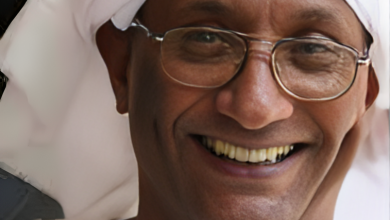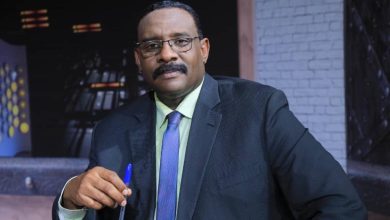Sudan Events’ Editor Analyses Political Prospective in Sudan at the Wake of Volker’s Resignation

By: Ramadan Ahmed
September 13, 2023
On 13 September 2023, the Secretary-General of the United Nations, Antonio Guterres, announced the acceptance of Volker Peretz’s resignation from his position as the head of the UNITMS mission in Sudan. This resignation coincides with intense diplomatic activity by General Abdel Fattah Al-Burhan, the Chairman of the Sovereignty Council, on the international front amidst the complete absence of political forces. Volker’s resignation not only marks the beginning of a new phase in Sudan’s political landscape but also signifies the failure of the UN envoy’s mission in Sudan and, more broadly, the international community’s inability to establish democracy in the country.
In this article, we will examine the implications of this resignation on Sudan’s political scene in light of regional developments and Al-Burhan’s international engagements. We will also explore the roles of political forces as they observe these developments.
Volker’s resignation comes after local, regional, and international developments that made his mission exceedingly difficult, if not impossible. Key among these developments is the failure of attempts to integrate the Rapid Support Forces (RSF) into the political scene through the “Jeddah talks.” This failure can be attributed to several factors, primarily:
First, the RSF’s inability to form a prospective de facto government which would have received “shy” international condemnation before General Hemedti was accepted as the new de facto “Emir” of Sudan.
Secondly, the brutal behaviour of the RSF and serious human rights violations prompted international condemnation, causing disillusionment among those hoping for the RSF’s future as an armed force and political player.
Third, and most importantly, the recent strong stance the United States took against the RSF. The U.S. condemned racially motivated killings and imposed sanctions on Abdel Rahim Daglo, the brother and second-in-command of the RSF. The combination of these factors, among others, made Volker’s mission extremely challenging, if not impossible.
Politically, the RSF has suffered losses and can no longer effectively market itself on the global stage as its advisors once did. However, militarily, the RSF still poses a significant security threat. In addition to their widespread presence in Khartoum and their occupation of citizens’ homes and looting of their property, they also control some cities and have besieged others in Darfur and Kordofan. It is difficult to predict whether the army will defeat them, especially considering the potential for prolonged warfare and increased civilian suffering. The ideal solution both parties should consider is the RSF’s surrender of their weapons, provided they transform into a political entity and their members are allowed to return to their home regions. I understand that this scenario would be difficult for the RSF and their supporters to accept, considering that losing their arms would be seen as a defeat. Likewise, the army and its supporters have a strong desire to eliminate the RSF from the political landscape.
It is important to note that external forces may not have the capacity to achieve a breakthrough, whether regional or international, given the conflicting agendas of the Quartet, IGAD, and the African Union. These conflicting agendas have significantly slowed down negotiations in Jeddah, failing to keep pace with the rapidly evolving situation on the ground. Furthermore, the recent U.S. stance indicates a shift away from the Jeddah platform, which had previously balanced the Sudanese army and the RSF.
On another note, Al-Burhan’s foreign tours have gained momentum in global decision-making circles, bolstering the efforts of Sudan’s ambassador to the United Nations, who has garnered extensive international condemnation of RSF violations. Al-Burhan’s tours have strengthened his position, supported by certain political forces such as the Democratic Alliance and former regime loyalists. In contrast, the RSF’s support has dwindled among political forces, especially those associated with the Forces for Freedom and Change (FFC), since many Sudanese view them as the political wing of the RSF. This perception has been reinforced by the FFC’s failure to condemn RSF violations despite their harsh criticism of the army. Additionally, the RSF representative attended an FFC meeting held in Addis Ababa in mid-August 2023.
In all their diversity, Sudanese political forces remain entirely absent and have not yet grasped the gravity of the situation. They must be willing to compromise on their rigid stances to save the country from military rule. This compromise is essential for achieving a political breakthrough that can tip the scales in favour of a civilian state over a military one. Some political forces, particularly the FFC, continue to place their hopes on external solutions, failing to recognise the significant shift in the global stage. The international community can no longer exert pressure on impending military governments, as the era of unipolarity has ended, and the world is now multipolar. Powerhouses in international politics seek new allies and are not particularly concerned with democratic principles.
It is enough to look at what is happening in West Africa, where military coups have shown France a “red eye”. Who would have expected that a military coup in Niger would force France to pay 200 euros per kilogram of uranium instead of the 50 cents it had been paying for years since independence? This audacity of military leaders is only possible because of the global shift in the political landscape.
Therefore, Sudanese political forces must realise that their petty political squabbles may cause them to miss the opportunity to establish a lasting civilian democratic system, as seen in Egypt. The same shortsightedness that limited the political forces in Egypt and prevented them from reasoning now dominates the Sudanese political landscape.
In conclusion, the situation in Sudan is complex and multifaceted, with political forces and international actors playing critical roles. The resignation of Volker Peretz marks a turning point, highlighting the challenges and opportunities facing Sudan’s political future. Sudanese political forces must navigate this complex landscape and adapt to the evolving global political dynamics to achieve lasting change.
Therefore, I say that Volker’s resignation marks the beginning of a new phase in Sudan with unclear contours. However, the indicators suggest that as long as political forces are incapable of achieving a minimum level of national consensus to consolidate their strength and present a convincing political programme to the international and regional community, Al-Burhan is preparing himself, and perhaps already taking steps, for the future. But the question arises: Is Al-Burhan the right man for the upcoming stage, with all its challenges?
To answer this question, we must review Al-Burhan’s role in the past phase to understand precisely his role in current events. Al-Burhan is obsessed with the participation complex, particularly with General Mohamed Hamdan Daglo, the leader of the Rapid Support Forces (RSF), in all the crimes committed during the era of the Salvation Government. These two figures played a significant role in everything that transpired. Perhaps this fateful connection with the RSF leader led Al-Burhan to make catastrophic mistakes during the transitional period, starting from the fall of General Bashir’s government on 6 April 2019, through the violent dispersal of the General Command sit-in on 3 June 2019, to appointing the RSF leader as his deputy in the Sovereignty Council, despite the absence of such a position in the Constitutional Document that was established for the transitional period. Furthermore, Al-Burhan is responsible for exempting the RSF from subordination to the armed forces, allowing them to arm and recruit during the transitional period, increasing their fighting force from only 20,000 during the era of the Salvation Government to more than 120,000 soldiers. This has led to the presence of two parallel armies in the country. All the deadly weapons acquired by the RSF were done with Al-Burhan’s direct approval, despite the discontent of some military leaders who were forced to retire upon explicit instructions of the RSF leader.
Al-Burhan’s role in the political scene leans towards complicity, which necessitates accountability if there were a state of institutions. Therefore, from the perspective of the Sudanese citizen who aspires to a state of institutions, law, progress, and prosperity, Al-Burhan is not fit to lead the upcoming stage. However, from the perspective of foreign countries eager to exploit and loot Sudan’s wealth and maintain its backwardness, Al-Burhan is an ideal candidate because they can use his weakness and manipulate him to achieve their interests. Most military leaders and oppressive political elites surrender themselves to foreign powers either because they lack legitimacy, and therefore foreign powers will protect them from their own people, or because they have committed mistakes they fear being held accountable for, so they turn abroad. In both cases, the term “puppets” applies.
I believe that if political forces, guided by wisdom, were to expand their horizons and accept each other—including remnants of the previous regime, as ultimately, they are civilians—and anyone willing to engage in peaceful power-sharing through the ballot box, this consensus, if achieved, would block the path for the military institution. It would also curb its political aspirations that align with foreign desires and prevent any new Volker who might serve as a cover for foreign interests.



